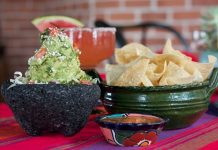Nourishing Narratives: Empowering Lactation through the B.L.A.C.K. Course
 Lactation is a beautiful yet often challenging aspect of motherhood. For many Black and People of Color (POC) mothers, the journey to breastfeed can be compounded by historical and societal factors that affect health outcomes and family dynamics. In this blog post, we explore the 45-hour lactation course offered by the B.L.A.C.K. Course, which not only equips participants with valuable lactation knowledge but also explores the profound impact of racism, slavery, and the broader family dynamic.
Lactation is a beautiful yet often challenging aspect of motherhood. For many Black and People of Color (POC) mothers, the journey to breastfeed can be compounded by historical and societal factors that affect health outcomes and family dynamics. In this blog post, we explore the 45-hour lactation course offered by the B.L.A.C.K. Course, which not only equips participants with valuable lactation knowledge but also explores the profound impact of racism, slavery, and the broader family dynamic.
Understanding the B.L.A.C.K. Course
The B.L.A.C.K. Course stands for “Breastfeeding and Birth, Lactation, Accommodation, Culture, and Kinship.” “The full scope lactation and breastfeeding education course made by and for Black People and folks supporting Black breastfeeding families. This course is designed to be a prep course for aspiring IBCLC’s and breastfeeding counselors and other supporters. Black Breasts, Black Mothers, Black Families, Black Voices, Black Community, Black Experiences. Allies & Accomplices who are ready to do the work to wear these titles are welcome into our space to learn, heal, and sow seeds to bear the fruit of repentance. It is a unique program taught by Black lactation consultants, designed specifically to address the needs and experiences of Black and POC mothers The Black Course.”  Meet the instructors of the B.L.A.C.K. Course Ngozi Tibbs, Lydia O. Boyd, TaNefer Camara, and Felisha Floyd. Lydia O. Boyd has multiple years in lactation that spans working with BIH, WIC, private practice, community advocacy, non-profit sector, teaching and presenting. TaNefer Camara has multiple years in lactation that spans working with WIC, private practice, being an hospital-based IBCLC, presenting, researcher, and program evaluator. Ngozi D. Walker-Tibbs has multiple years in lactation that spans working as a hospital-based IBCLC, private practice, community advocate, teaching, and lecturing. Felisha B. Floyd has multiple years in lactation that spans working with WIC, private practice, advocacy, policy, and anti-racism strategists. The instructors; “all have a minimum of 10 years in lactation support, IBCLCs, experienced in community lactation support and are mothers and have breastfed their babies.” These knowledgeable individuals are at the helm of this transformative program, bringing their expertise and passion to empower mothers and families in the lactation journey.
Meet the instructors of the B.L.A.C.K. Course Ngozi Tibbs, Lydia O. Boyd, TaNefer Camara, and Felisha Floyd. Lydia O. Boyd has multiple years in lactation that spans working with BIH, WIC, private practice, community advocacy, non-profit sector, teaching and presenting. TaNefer Camara has multiple years in lactation that spans working with WIC, private practice, being an hospital-based IBCLC, presenting, researcher, and program evaluator. Ngozi D. Walker-Tibbs has multiple years in lactation that spans working as a hospital-based IBCLC, private practice, community advocate, teaching, and lecturing. Felisha B. Floyd has multiple years in lactation that spans working with WIC, private practice, advocacy, policy, and anti-racism strategists. The instructors; “all have a minimum of 10 years in lactation support, IBCLCs, experienced in community lactation support and are mothers and have breastfed their babies.” These knowledgeable individuals are at the helm of this transformative program, bringing their expertise and passion to empower mothers and families in the lactation journey.
Exploring Racism in America
One of the pivotal aspects of the B.L.A.C.K. Course is its candid discussion of racism in America and its effects on breastfeeding. Participants explore historical perspectives on health disparities in Black communities. Understanding this context is crucial for providing effective support.
The Legacy of Slavery on Breastfeeding
Slavery’s dark history left a lasting impact on Black families, including the practice of wet nursing. The course examines how slavery disrupted the traditional family dynamic and breastfeeding practices, leaving a legacy that still affects breastfeeding choices today.
Incorporating the Entire Family Dynamic
Effective lactation support extends beyond the mother-child dyad. The B.L.A.C.K. Course emphasizes the importance of involving the entire family in the breastfeeding journey. This holistic approach acknowledges the support system’s role in fostering success and addressing challenges.
Personal Healing and Empowerment
For many participants, the B.L.A.C.K. Course is a transformative experience. It provides a safe space to address personal struggles and guilt related to breastfeeding. Mothers who have faced challenges like allergies, tongue and lip ties, or postpartum loss find solace in the shared experiences and support offered within the course.
Conclusion
The 45-hour lactation course offered by the B.L.A.C.K. Course is more than just an educational program; it’s a platform for healing, empowerment, and community building. By acknowledging the historical and societal factors that affect breastfeeding experiences for Black and POC mothers, this course equips participants with the knowledge and resilience to navigate the challenges and joys of lactation. It is a powerful step toward promoting equitable access to lactation support and nurturing healthier families.












